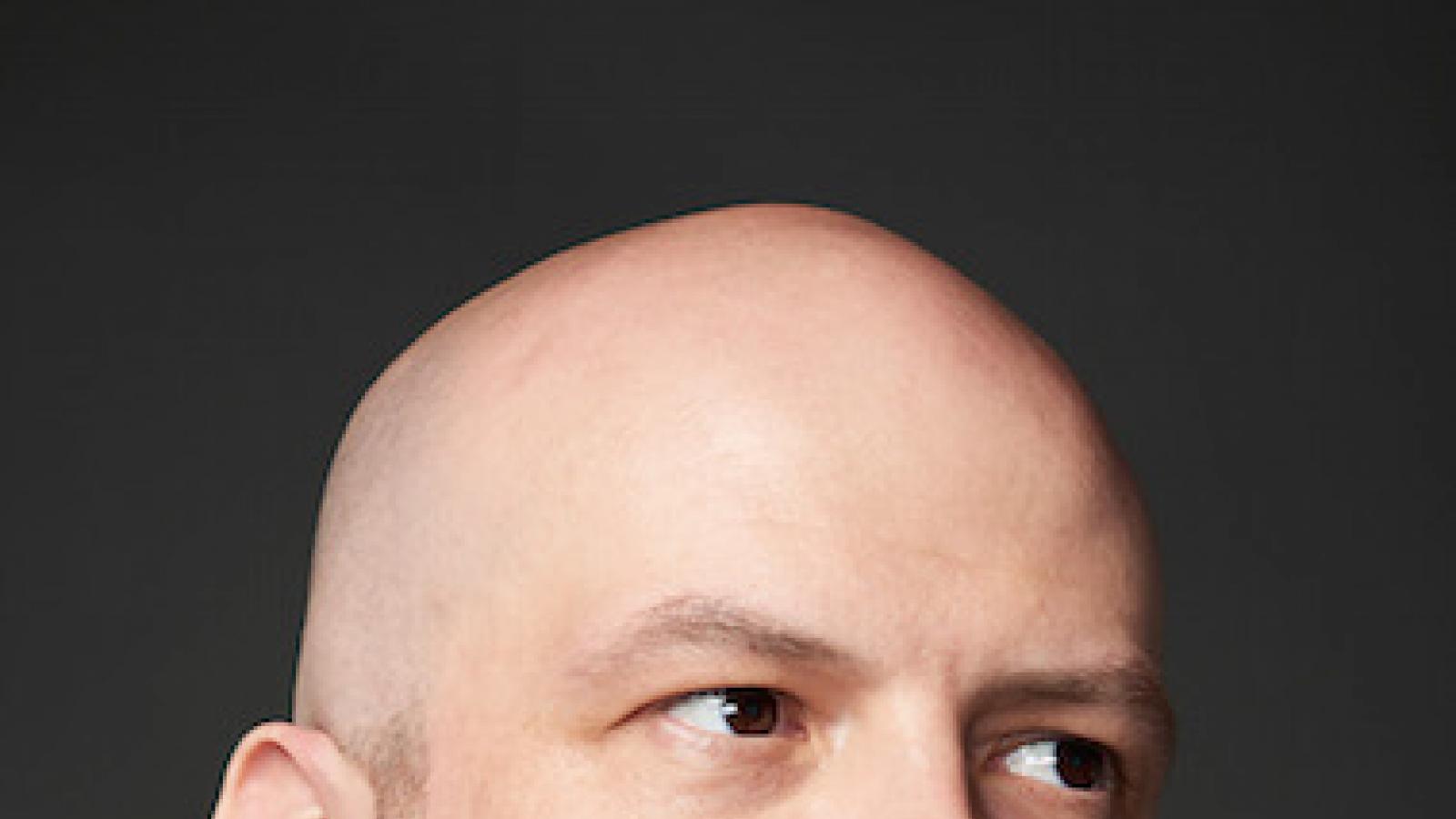“The number of unproduced scripts I've written is astronomical, but all it takes is seeing one of them find life to realize just how much all of that failure prepares you for your successes.” – Ted Geoghegan
That Ted Geoghegan's feature, We Are Still Here, ends up drenched in gore is no suprise given Geoghegan has loved slasher films since he was a kid. Still, unlike many films in the horror genre these days, Geoghegan is as interested in character and exploring loss as he is in spine-tingling special effects. Known primarily as a writer and film publicist, We Are Still Here marks Geoghegan's debut as a feature film director. As he told us when we spoke with him via e-mail, "the more I worked on the screenplay... the more I realized I didn't want to hand it off to anyone else." Here's more from Geoghegan on falling in love with the movies, how working has a publicist has upped his game as a filmmaker, and why--despite the film world's reputation as a cutthroat business--it's stil important to be nice.
NEA: What do you remember as your earliest exposure to or engagement with the arts?
TED GEOGHEGAN: Growing up in the early 80s, I was a total TV kid--and actually obsessed over my television schedule. By my early teens, I'd fallen in love with film and began an exhaustive search to learn as much about the medium as humanly possible--which required a lot more work in the pre-internet era.
NEA: What was your journey to becoming a filmmaker?
GEOGHEGAN: As my love of cinema continued to grow, I found myself obsessed with the idea of creating my own works. Without the skills or training to do so, I began writing screenplays based on what I'd learned from reading mail-order scripts. In college, I tried my hand at writing a book on horror films, but it ultimately did not go anywhere. And in 2001, I was fortunate enough to be asked to co-write a film for German director Andreas Schnaas and spent the following fifteen years chasing every lead I could find.
NEA: What's your philosophy of filmmaking? What is film supposed to do as an art form? What is the filmmaker's role in the community?
GEOGHEGAN: I do not hold filmmaking on a pedestal. It's an art like any other, and requires great patience, understanding, and knowledge to truly appreciate. That said, it's also the people's medium, and equally important to casual cinemagoers who simply want 90 minutes of escape from reality. While I appreciate highbrow films that push artistic boundaries, I also understand the importance of easily digestible fluff.
NEA: What makes a good horror film? Why do we need horror films as an art form?
GEOGHEGAN: A good horror film is one that feels like a rollercoaster.It safely offers you a glimpse of the darkness, and sends you on your way. The greatest scary movies are those that stick to us for long after the credits roll, and keep us obsessed with what we've seen. They're waking nightmares, but just like actual nightmares, we find ourselves uncontrollably terrified by them.
NEA: What made you take the leap from writing into directing?
GEOGHEGAN: I'd never had an interest [in directing] until this script. I'd been very comfortable as a writer and producer, but the more I worked on the screenplay to We Are Still Here, the more I realized that I didn't want to hand it off to anyone else. It was my movie, and I wanted to be responsible for how it would turn out.
NEA: You've also worked as a film publicist. How has that informed how you approach your own filmmaking?
GEOGHEGAN: I would never have the resolve to direct if it wasn't for my life in publicity. It taught me more about directing than ten years on film sets, and allowed me to objectively decide what I was and was not capable of doing. Every single filmmaker I worked with as a publicist taught me something new about directing, and I took all of that to heart when making my debut feature.
NEA: What is the role of failure in your filmmaking process? How do you define success?
GEOGHEGAN: Success is being able to sleep at night without worrying what tomorrow will bring. While all successes are built on mountains of failure, it's important to not let it get you down. The number of unproduced scripts I've written is astronomical, but all it takes is seeing one of them find life to realize just how much all of that failure prepares you for your successes.
NEA: What is your advice to beginning filmmakers?
GEOGHEGAN: For god's sake, be nice. Shake hands, respect your peers, and do something good every day. I don't believe in karma, but I do believe that if you're a good person, people will take notice.
NEA: Who is one filmmaker--in horror or not--whose work has a lasting impact on you and why?
GEOGHEGAN: Rather than name a single filmmaker, I'll give you a genre. As a child, I fell in love with slasher movies. Arguably one of the most lowbrow, violently sexualized, and exploitative of all horror films, I was able to look past the bad and find a strange companion in these movies, and to this day I find myself drawn to the audacity of slasher films and what they stood for. Relics of a bygone era, they're now the cinematic equivalent of a warm blanket, providing me a terrifying amount of comfort.
NEA: Fill in the blank: Art matters because...
GEOGHEGAN: ..it has literally kept me alive all these years, and I know I'm not alone in saying that.

